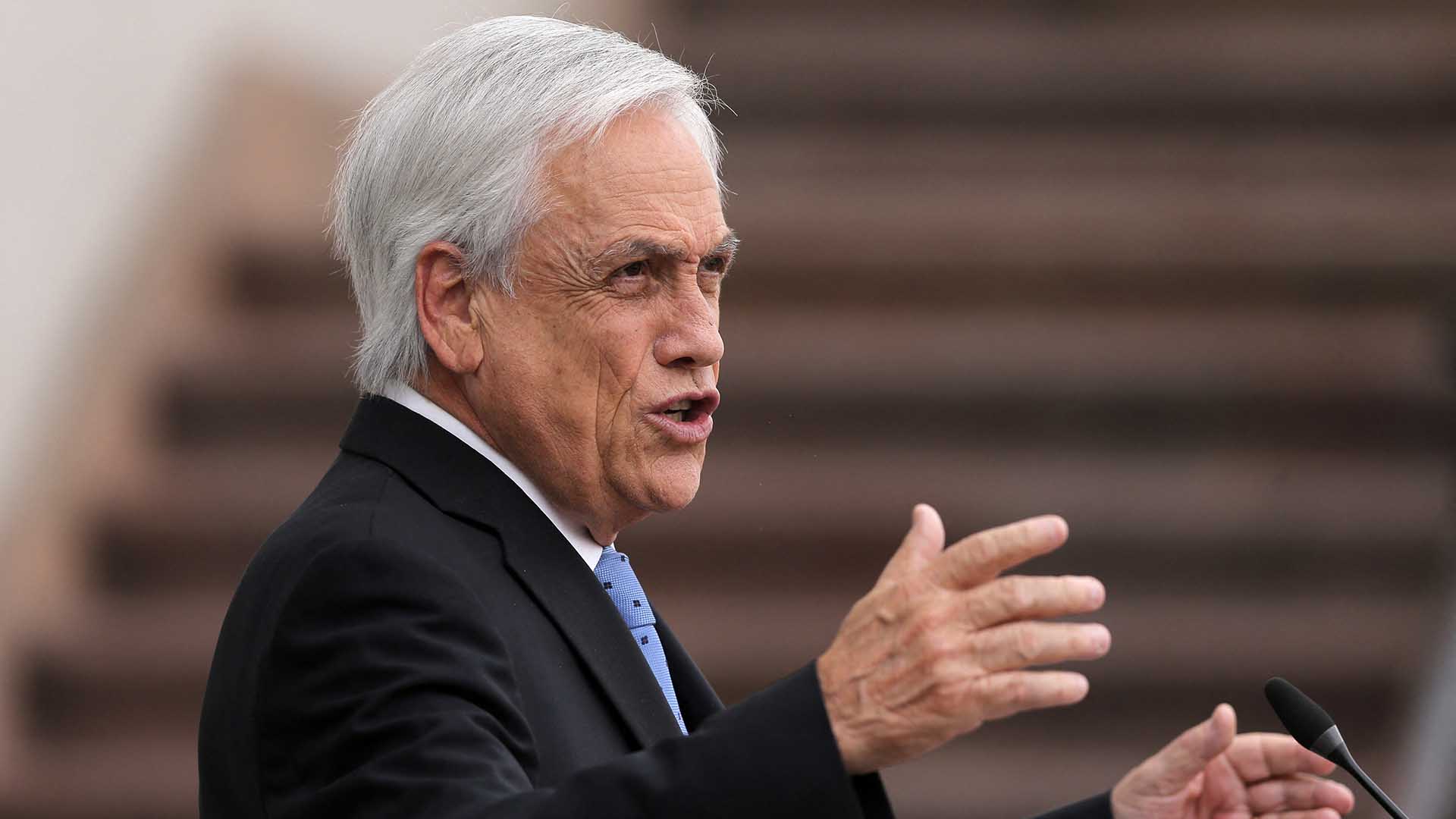Update, Oct. 13, 2021: Chilean opposition lawmakers have launched impeachment proceedings against President Sebastián Piñera over new details about the sale of a mining company revealed in the Pandora Papers investigation.
The opposition-controlled Chamber of Deputies will decide whether to approve or reject the accusation in a vote to be held the first week of November, ICIJ partners at EL PAÍS report. If approved, the case will then go to the Senate.
Chile’s national prosecutor’s office announced Friday that it would open a criminal investigation against President Sebastián Piñera following revelations concerning his business affairs in the Pandora Papers.
Investigators said the probe would focus on the 2010 sale by the Piñera family of a stake in a Chilean mining project and, depending upon the findings, could lead to bribery and tax-related charges.
The prosecutor’s office said that a prior investigation related to the business deal didn’t include a contract, written in English and signed in the British Virgin Islands, that was revealed in the Pandora Papers.
“The contract in English created in the British Virgin Islands was not included in the original investigation and we believe it is new evidence in the case,” said Marta Herrera, director of the Special Anticorruption Unit at the National Prosecutor’s office.
Herrera said that in addition to determining if criminal charges will be filed, investigators will also need to assess if there is a statute of limitation that prevents prosecutors from filing charges.
Earlier this week, Piñera said in a press conference that the information revealed in the leak had been investigated by the prosecutor’s office in 2017 and that he has been disconnected from his family’s businesses for more than 12 years.
Piñera is facing scrutiny on two fronts, with opposition parties also calling for a parliamentary charge that could lead to his impeachment.
The Pandora Papers revelations, first published days ago by ICIJ partners, the Chilean Center for Investigative Reporting (CIPER) and Labot, revealed that in December 2010, nine months into Piñera’s first term as president, a Chilean mining company, Dominga, partially owned by his children made a $152 million deal with another company belonging to one of Piñera’s closest friends, Carlos Alberto Délano.
Dominga was exploring a controversial $2.5 billion copper and iron mining project that would take place close to the Humboldt Penguin National Reserve, a sensitive environmental area that is habitat for whales, dolphins, birds and Humboldt penguins.
The first $138 million of the deal was made through shell companies registered in the British Virgin Islands, and was to be paid in three installments. According to the contract, the last installment of $9.9 million would only be paid if there was an absence of regulatory measures that would “irrevocably” prevent a mining project under consideration—for example, the creation of a nature preserve. The remaining $14 million was paid in Chile, according to documents obtained by ICIJ partner, CIPER.
The mining project has been in legal flux for years: It was rejected by an environmental commission in 2017. Andes Iron, the company that purchased the mining project, appealed, and the Supreme Court asked the environmental tribunal to reexamine their decision in 2019.
Opposition leaders said that the fact that Piñera was president at the time the deal was signed presents a conflict of interest and should be investigated.
“All the opposition benches have agreed to initiate a constitutional indictment against President Sebastian Pinera,” Jaime Naranjo, spokesperson for the Socialist Party, reportedly said at a press conference earlier this week.
If the constitutional indictment is successful, it could lead to the president’s removal.

